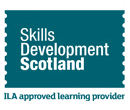
As well as an enjoyable course, this is designed to be a serious introduction into the fascinating subject of equine behaviour. Obviously the subject matter is huge and it would be impossible to cover it all in a course of this size, but if you have never studied psychology before this is a good place to start.
Course Modules
1. Ways of Explaining Equine Behaviour
- What can affect behaviour? The effects of learning, diet, hormones, physical conformation.
- What is learning? An introduction to learning theories, including the nature/nurture debate
- The different ways horses learn
- Do horses think? Do they feel emotions?
- Instincts and innate behaviour
Learning through experience, trial and error learning and one-trial learning and the effects on future behaviour
2. Sexual Behaviour and Foaling
- Sexual behaviour within a herd
- The effects of hormones on the male and female horse
- Reproductive anatomy and physiology
- The behaviour of the mare in season
- The effects of gelding a horse
- Courtship and mating
- Pregnancy and foaling
3. Foal and Young Horse Behaviour and Psychology
- The differences between altricial and precocial species at birth
- The first few hours of a foal's life
- Critical and sensitive periods
- Imprinting and imprint training
- Social communication between horses
- The importance of play for a young horse
- Weaning of foals and separation from the mare
- Learning, and classical and operant conditioning
- The principles of reinforcement and the way horses learn
- Habituation
- The shaping of behaviour using successive approximation
4. The Behaviour and Psychology of the Adult Horse
- Evolution of the breeds of horse, and the differences between artificial and natural selection
- The equine senses, and their impact upon the behaviour of the horse and its survival
- Sexual, psychological and physical maturity and the normal development
- The development of social behaviour, and aggressive behaviour
- Herd behaviour and the hierarchy within a herd
- The elderly horse and behavioural changes
5. Unusual Equine Behaviour
- What is normal, and what is abnormal in terms of behaviour?
- Maladaptive learning
- The causes of stereotypical behaviour
- Physical problems that can alter behaviour
- Vacuum activities and fixed-action patterns of behaviour
- Self-mutilation
- Aggressive behaviour and the possible causes
- Anomalous reactivity and learned helplessness
- Latent learning
- Escape and avoidance learning
6. Avoiding Problem Behaviour
- Determining the cause of problem behaviour
- Buying a horse and vetting it
- Stress in horses and how to reduce it
- The management of horses in line with natural equine behaviour
- The traditional methods of stopping stereotypical behaviour
- Artificial gadgets used in horse training
- Alternative methods of dealing with problem behaviour
- Shaping of behaviour, including the use of clicker training
- Feeding to avoid problem behaviour
As well as an enjoyable course, this is designed to be a serious introduction into the fascinating subject of equine behaviour. Obviously the subject matter is huge and it would be impossible to cover it all in a course of this size, but if you have never studied psychology before this is a good place to start.
Course Modules
1. Ways of Explaining Equine Behaviour
- What can affect behaviour? The effects of learning, diet, hormones, physical conformation.
- What is learning? An introduction to learning theories, including the nature/nurture debate
- The different ways horses learn
- Do horses think? Do they feel emotions?
- Instincts and innate behaviour
Learning through experience, trial and error learning and one-trial learning and the effects on future behaviour
2. Sexual Behaviour and Foaling
- Sexual behaviour within a herd
- The effects of hormones on the male and female horse
- Reproductive anatomy and physiology
- The behaviour of the mare in season
- The effects of gelding a horse
- Courtship and mating
- Pregnancy and foaling
3. Foal and Young Horse Behaviour and Psychology
- The differences between altricial and precocial species at birth
- The first few hours of a foal's life
- Critical and sensitive periods
- Imprinting and imprint training
- Social communication between horses
- The importance of play for a young horse
- Weaning of foals and separation from the mare
- Learning, and classical and operant conditioning
- The principles of reinforcement and the way horses learn
- Habituation
- The shaping of behaviour using successive approximation
4. The Behaviour and Psychology of the Adult Horse
- Evolution of the breeds of horse, and the differences between artificial and natural selection
- The equine senses, and their impact upon the behaviour of the horse and its survival
- Sexual, psychological and physical maturity and the normal development
- The development of social behaviour, and aggressive behaviour
- Herd behaviour and the hierarchy within a herd
- The elderly horse and behavioural changes
5. Unusual Equine Behaviour
- What is normal, and what is abnormal in terms of behaviour?
- Maladaptive learning
- The causes of stereotypical behaviour
- Physical problems that can alter behaviour
- Vacuum activities and fixed-action patterns of behaviour
- Self-mutilation
- Aggressive behaviour and the possible causes
- Anomalous reactivity and learned helplessness
- Latent learning
- Escape and avoidance learning
6. Avoiding Problem Behaviour
- Determining the cause of problem behaviour
- Buying a horse and vetting it
- Stress in horses and how to reduce it
- The management of horses in line with natural equine behaviour
- The traditional methods of stopping stereotypical behaviour
- Artificial gadgets used in horse training
- Alternative methods of dealing with problem behaviour
- Shaping of behaviour, including the use of clicker training
- Feeding to avoid problem behaviour



